
JEDI Mission Statement
The JEDI committee is dedicated to promoting a climate of inclusiveness and celebrating our diverse community within the Department of Biochemistry. Our collective success depends on a robust exchange of ideas that is best achieved when the rich diversity of our perspectives, backgrounds, and experiences is recognized and acknowledged. We affirm that all members of the department should feel secure and welcome, that the contributions of all individuals must be respected, and that all voices should be heard.
To accomplish its mission, the JEDI committee strives to:
- Celebrate the diversity of our cultures, backgrounds, and beliefs.
- Address critical issues related to injustice and inequity within our department.
- Organize events and initiatives that promote diversity, inclusion and equity in the Department of Biochemistry.
- Advance equity and inclusion in the greater School of Medicine and Duke University communities.
Celebrating our Differences
Duke is dedicated to maintaining a climate of inclusiveness and celebrating our rich and diverse scientific community. To accomplish this, we honor everyone’s background and experiences through events, programs, and initiatives that promote diversity in the classroom, workplace, and community.
Read a statement including resources from the Biochemistry Graduate Student Council and JEDI Committee.
Read letters from leadership on racial diversity
Read a letter from leadership on racial injustice.
Read a letter from leadership on the Gaza-Israel conflict.
Juneteenth

Juneteenth commemorates June 19, 1865, when news of the Emancipation Proclamation finally reached the enslaved people of Texas, years after it was issued. On that day, our nation began to realize that no one is free until everyone is free—a lesson we are still learning today. We encourage everyone to observe the holiday by engaging in commemorative community activities, reflecting on the progress we’ve made and recommitting to our promise of removing any remaining impediments to anti-racism in our community.
Pride Month

June is Pride Month. The Department of Biochemistry recognizes and celebrates our LGBTQ+ colleagues and family members and their significant contributions in advancing education and research in our department and beyond. We are committed to supporting our lesbian, gay, bisexual, transgender, and queer communities and allies. Please consider joining the LGBTQ+ Duke Network to help create a safe and inclusive workplace for all.
Our Diversity Work
In the Department of Biochemistry, we aim to build a truly inclusive community through the following:
Biochemistry JEDI Committee
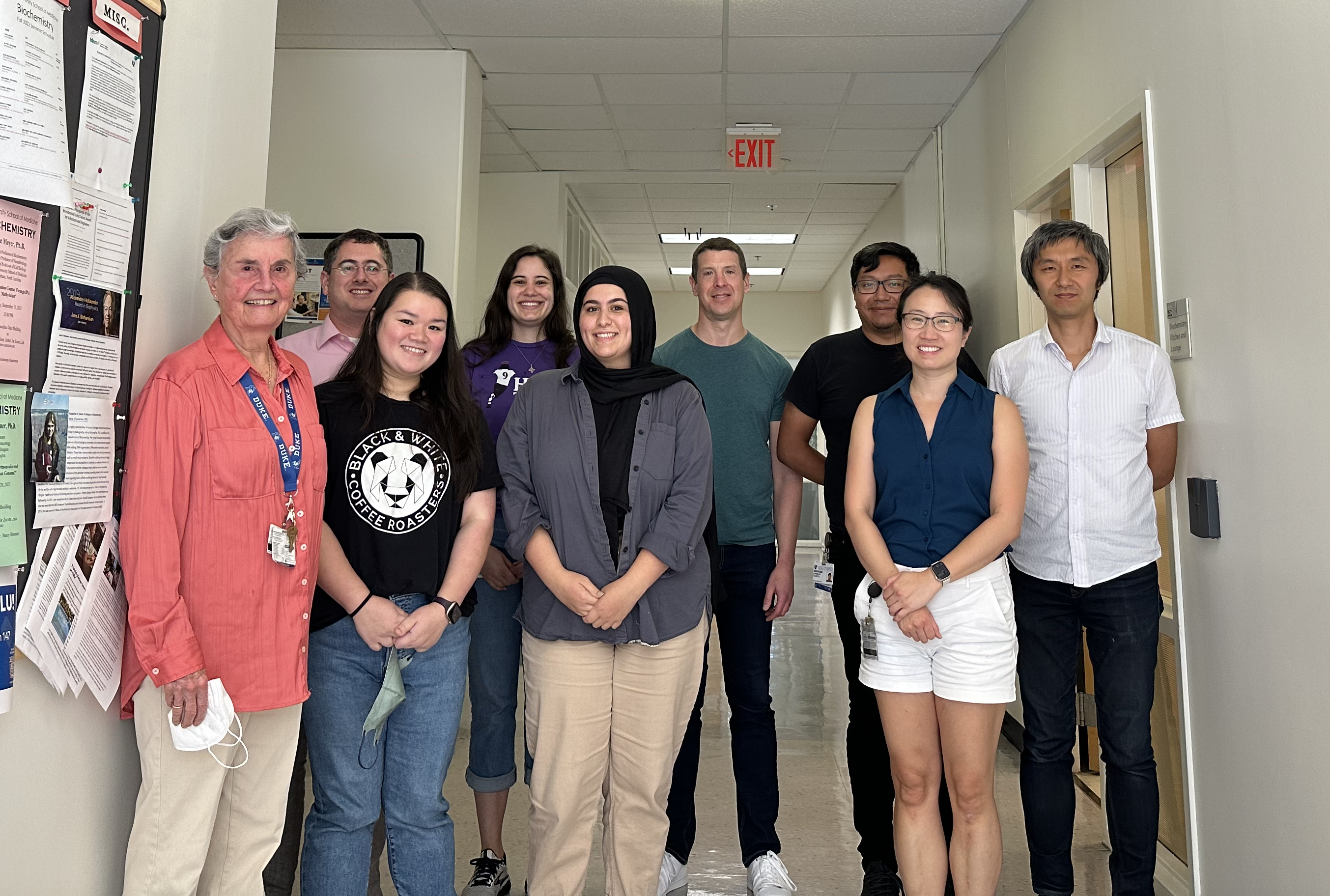
With strong support from the department, the Biochemistry JEDI Committee—consisting of PhD students, postdocs, staff, and faculty—promotes a welcoming environment, provides a platform for community outreach, and encourages faculty and student attendance at national conferences for underrepresented minorities in the sciences. The JEDI committee also sponsors a departmental postdoc forum where junior faculty share career advice on their recent transitions to faculty positions. This committee always looks for new ideas.
Contact Alberto Bartesaghi if you'd like more information, want to volunteer, or have program suggestions.
You may also fill out this anonymous feedback form: https://forms.gle/xLRh1FyCrTjTz6cZ8.
Current members of the JEDI Committee are:
- Alberto Bartesaghi
- Mike Boyce
- Sarah Ermatinger
- Meta Kuehn
- Clariss Limso
- Bettie Sue Masters
- Kate Meyer
- Kalina Tsolova
- Ken Yokoyama
Volunteer Opportunities Workshop
Each year, the JEDI committee hosts a workshop for staff, faculty, students, and postdocs to give input on how we can better promote science initiatives in our community and to learn about volunteering opportunities in the greater Durham area. Past presentations have included how to participate in educational opportunities in our neighborhood public schools and at the nearby NC Museum of Life Science.
Community Volunteering
As part of an ongoing department initiative, PhD students spend an hour a week tutoring underrepresented Durham Public School students in STEM through the Emily K Center.
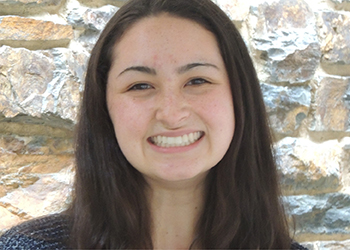
"Watching my student learn new concepts helped me gain confidence in my future career goals.”
- Emily Cannistraci, PhD Student
Diversity and Inclusion Events
The Biochemistry Department sponsors activities in and around Durham that have included volunteering at the Food Bank of Central and Eastern North Carolina and raising funds for the Piedmont Wildlife Center and the NC Museum of Life and Science. The department also co-sponsors a table for Biochemistry students and guests at the annual Ida Stephens Owens Black Tie Dinner hosted by the Bouchet Society.
Diversity and Inclusion Seminars
Biochemistry’s annual JEDI-sponsored seminar has brought in nationally recognized scholars who are also experts in addressing the challenge of achieving a departmental representation that reflects our national diversity. In addition to their scientific presentations, these leaders preside over a seminar that challenges the status quo and identifies solutions to help achieve an inclusive and diverse department. Students, faculty, and postdocs are encouraged to engage in fruitful conversations with visiting speakers.
Past speakers have included:

2023
John Pham, Ph.D.
Cell Press, Editor-in-Chief
Cell
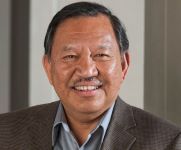
2023
Baldomero Olivera, Ph.D.
University of Utah, Distinguished Professor of Biology
HHMI Investigator, School of Biological Sciences
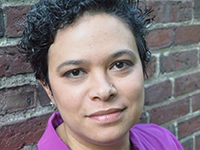
2022
Candice Etson, Ph.D.
Wesleyan University, Assistant Professor of Molecular Biology & Biochemistry
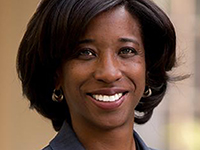
2019
Tracy Johnson, Ph.D.
UCLA, Professor Maria Rowena Ross Chair, Cell Biology & Biochemistry
HHMI Investigator & Associate Dean for Inclusive Excellence
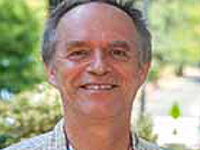
2018
Mark Peifer, Ph.D.
UNC Chapel Hill, Michael Hooker Distinguished Professor, Department of Biology
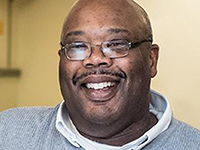
2017
Squire Booker, Ph.D.
Penn State, Eberly Distinguished Chair in Science
HHMI Investigator and Professor of Chemistry, Biochemistry, & Molecular Biology
The Biochemistry Graduate Student Council (BGSC)
The Biochemistry Graduate Student Council works to promote student interests at Duke University both within and outside of the Biochemistry Department. This includes acting as a liaison between students and faculty or other Duke administrators, representing Biochemistry student interests at the Graduate & Professional Student Government (GPSG), as well as facilitating social and outreach events. BGSC is composed of five members who are elected to represent the Biochemistry graduate student body in an annual, student-wide election. Members serve four roles including: President, Vice President, Event Coordinators (2), and GPSG Representative. Twice a year, the BGSC hosts a student town hall to discuss ongoing work, advertise upcoming BGSC events such as science-oriented volunteer activities and social events, and allow trainees to bring up any concerns related to graduate student life. To keep up with our current events, visit the BGSC website or follow our Instagram account.
Current BGSC Members are:
Director/President: Violet Beaty
Vice President: Celeste Marin
Event Coordinators: Vita Zhang, Sai Kwan Khal
Outreach Coordinators: Abby Watson, Sai Kwan Khal
GPSC Rep: Dalal Azzam
Contact us or place written feedback in the suggestion box located in the biochem student lounge
BioCoRE
BioCoRE is funded in part by an NIH Initiative for Maximizing Student Development (IMSD) to construct a strong and diverse bioscience community across the School of Medicine, the Graduate School, Trinity College, and the Pratt School of Engineering. Graduate and undergraduate students can apply for a slot to be part of Duke BioCoRE, with decisions based on fit with the program’s goals.
BioCoRE's benefits include:
- Early Start–full stipend paid in August of first year
- Beginning research and community building during Early Start
- Enhanced advising and specialized mentoring
- Funds for scientific conference travel
- Scientific and career development programs
- Social gatherings with BioCoRE community
- Synergy with PhD Graduate Programs
BioCoRE was built to:
- Promote student development through research experiences, engagement with faculty, and career instruction.
- Build vertical advising and mentoring relationships between undergraduate, graduate students and faculty in the bioscience community.
In late July/early August the BioCoRE Annual Symposium convenes over 200 renowned faculty from underrepresented groups plus faculty that study minority issues, administrators from North Carolina institutions, and students to:
- Hear nationally acclaimed speakers address current research topics and diversity programs in science.
- Showcase student research in oral and poster presentations.
- Convene discussions on student career development.
- Provide student workshops on research promotion, optimizing research, mentee relationships, and surviving setbacks.
Bouchet Society
In honor of Dr. Edward Alexander Bouchet, The Duke University Bouchet Society supports underrepresented graduate students in the natural sciences, technology, engineering, and math to advance their academic pursuits and professional efforts. The highlight of each year is the Ida Stephens Owens Black Tie Dinner attracting graduate students from all departments for an evening of food, camaraderie, and inspiration from renowned guest speakers and Duke alumni.
The Biochemistry department welcomes postdoctoral researchers from all backgrounds and around the world and provides services that help them acclimate to life at Duke.
Office of Postdoctoral Services
To help our postdocs find a supportive community, get answers to questions about life in Durham, and access career development workshops and advice, Duke built the Office of Postdoctoral Services. It’s a central resource for postdoctoral appointees and serves as a liaison between postdocs, faculty, administrators, and staff. It provides services such as:
- Orientation Seminars
- Career Development Programs
- Social Gatherings
- Career Preparation
In our commitment to building a diverse community, Duke offers a number of services that help achieve our goal of recruiting faculty with different opinions, experiences, and backgrounds.
The School of Medicine’s Office of Diversity and Inclusion fosters a climate where faculty, students, and staff experience a true sense of belonging while thriving and contributing their best work. Its goal is to attract and retain diverse, outstanding talent who are fully engaged and positively impact how we teach, work, learn and serve in an increasingly diverse world.
Our Biochemistry faculty and students help mentor SROP minority undergraduates and have helped many to apply to Duke for post-graduate studies.
Summer Research Opportunity Program (SROP)
For underrepresented minority undergraduates (in and outside Duke University) interested in pursuing a biological sciences PhD program, Duke SROP provides a summer of mentored research along with a unique social experience. Research comes first, but also included during the 10-week program are game nights, dinners out, shopping excursions, a night at the Durham Bulls, and a tour of the world-renowned Duke Lemur center. SROP students are often matched with current research that’s happening in the Biochemistry department. Over the years, we’ve been happy to welcome many SROP alumni into our graduate program. All underrepresented minorities are encouraged to apply.
If you think that you or someone else has been the victim of discrimination or harassment, we encourage you to:
- View the Grad School reporting structure for possible next steps: Discrimination and Harassment Reporting
- Consult University Guidelines: Office of Institutional Equity
- Ask for assistance from the department contact: Bettie Sue Masters
- Contact the University Student, Postdoc, or Faculty Ombuds: Ombuds
Wellness Resources
Student mental and physical wellness is important and we encourage you to visit these Duke resources for coaching, counseling, and health concerns.
Equity at Duke
The Office for Institutional Equity upholds the university’s equal opportunity and affirmative action, provides diversity and inclusion services, and is where students can lodge complaints and concerns.
Duke Equal Opportunity Statement
Duke University prohibits discrimination and harassment and provides equal employment opportunities without regard to an individual's age, color, disability, gender, gender expression, gender identity, genetic information, national origin, race, religion, sex, sexual orientation, or veteran status. Duke is committed to recruiting, hiring, and promoting qualified women, minorities, individuals with disabilities, and veterans.
Pursuant to Title IX of the Education Amendment of 1972, Duke prohibits discrimination on the basis of sex in any of its educational programs or activities.